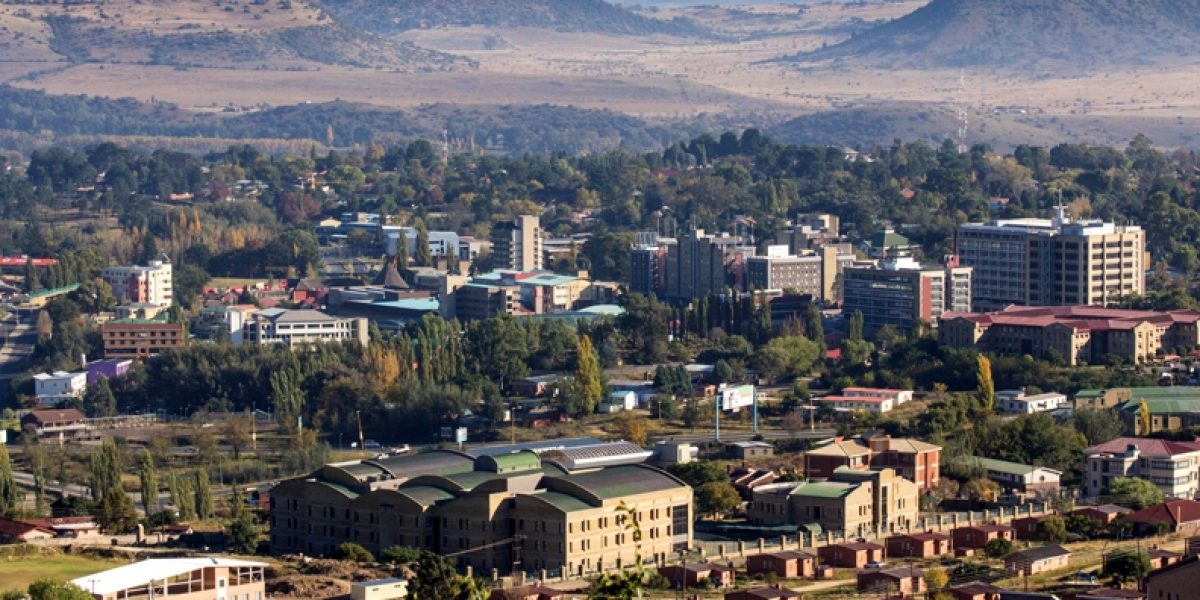It is the only country, apart from the Vatican, that is completely surrounded by another. It is entirely reliant on South Africa for all imports and exports, while a few commodities help supplement its income. The bulk of its fiscal income, around 37%, however, comes from the Southern African Customs Union (SACU), the oldest customs union in the world, which Lesotho joined in 1910.
Politically, Lesotho has suffered in recent years. It has stumbled from election to coup, to coalition government to collapse in a destructive cycle. Elections have taken place yet again after a motion of no confidence succeeded against Prime Minister Pakalitha Mosisili. His collation collapsed after only two years in office.
Tom Thabane’s All Basotho Convention won the elections with 48 of the 120 seats, still short of the 61 seats needed for an outright majority. Thabane is likely to form a coalition with the same parties that helped him win the motion of no confidence. With a new government, Thabane should focus on the following critical areas in order to ensure peace, stability and prosperity for Lesotho:
1: Work closely with the World Bank
Lesotho’s export earnings come from clothing (40%), diamonds (22%), water, wool and tobacco. Its main export partners are the US (35%) and South Africa (30%). EU econometric modelling on the potential impact of the SADC-EU Economic Partnership Agreement, concluded in 2016, shows that there should be increased trade between the two parties for tobacco, textiles, vegetables and fruit.
Lesotho should focus its attention on the potential of the country to become a significant FFV exporter. It has received support from the World Trade Organization and World Bank to develop its FFV sector via two schemes that have distributed greenhouses to small farmers. The results have been encouraging but much more needs to be done to organise farmers, gear them towards exports and upscale production. Ensuring that Lesotho establishes a Bureau of Standards that can certify products as safe is another crucial link in the FFV export value chain. The necessary Standards Bill has been stuck in parliament for years due to the frequent changes in government.
2: Reduce revenue dependency
The income Lesotho has gained from the SACU revenue pool has been in steady decline, with more depreciation expected. Unfortunately there are not many alternatives to supplement this income, apart from tightening tax collection and guarding against illicit financial outflows. A 2017 UNU-Wider working paper estimated that Lesotho lost about US$20 million or just under 1% of GDP to tax revenue losses. There could be immediate impacts for government revenue if just a small improvement is made in tax collection and government focuses on illicit practices that sees revenue leaving the country.
3: Work closely with the Embassy of the United States in Lesotho
Lesotho’s relationship with the US is of paramount importance as it has developed its strong export-orientated textile industry on the back of the African Growth and Opportunity Act (AGOA), which gives 38 sub-Saharan African countries preferential access to the US market for about 6,000 product lines. To qualify countries must adhere to and aim to improve its rule of law, human rights protection mechanisms and must respect international labour standards.
In 2015 Lesotho exported more than US$330 million worth of textiles to the US. The factories employ around 44,000 people, mostly women. Their children rely on this income for school fees and balanced meals. It is therefore of grave concern that Lesotho’s AGOA eligibility has come under scrutiny due to a declining human rights record following the violent 2014 attempted coup. The US would like to see the implementation of the Southern African Development Community Commission of Enquiry recommendations, which has not been done. Forming a new government will give Lesotho an opportunity to reengage the US on these points, but firm action on the human rights front will help ensure the continuation of its AGOA benefits until 2025.
4: Upskill Lesotho women working in textile factories
AGOA expires in 2025, only eight years away. So far Lesotho’s government has done little to prepare its textile industry for a future with no preferential market access to the US. It is feared that textile factories in Lesotho will simply be closed down and thousands upon thousands of women will be left without an income. Lesotho has to upskill its textile labourers to take over managerial roles and other higher-end jobs. At present most women work as machinists where the focus is on repetition and speed of production. These menial jobs are under threat from automation, but robots are still years off from becoming designers and innovators. The government should work with women who are already innovating with African designs and Seshoeshoe fabrics for the local and South African clothing market.








